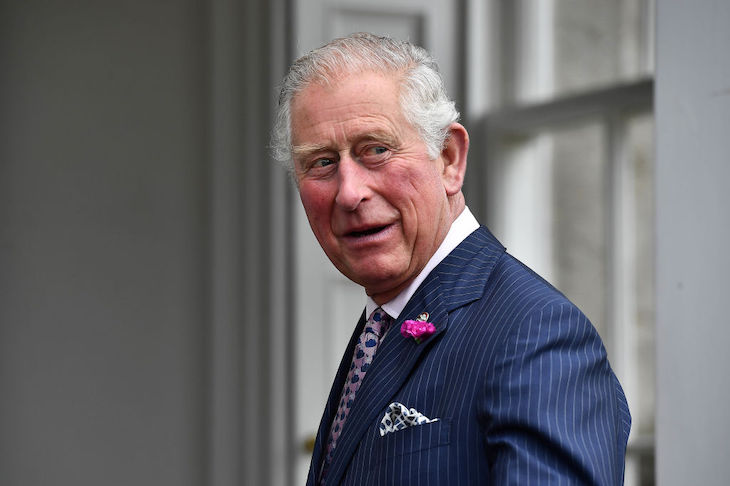You might have thought that many of the world’s scientists and doctors had come to an unequivocal decision on homeopathy: that it doesn’t work. There has been extensive research into homeopathy, and the unambiguous conclusion is that it has no more benefit than any other placebo. This is not to say that it’s harmful, unless it prevents the patient seeking conventional medical advice. It’s simply ineffective, except for the optimism it may engender.
In 2017, Simon Stevens, the NHS England’s chief executive, said homeopathy was ‘at best a placebo and a misuse of scarce NHS funds’, and ruled that homeopathic ‘treatments’ should no longer be available on the NHS. In 2010, a House of Commons Science and Technology Committee report stated that it was no more effective than a placebo. Back in 1986, the BMA set up an inquiry into homeopathy, after Prince Charles gave a speech on the subject four years earlier. It found no scientific evidence that homeopathy worked.
But our heir to the throne, who is neither a scientist nor doctor, begs to differ. Prince Charles still clings on to the idea that homeopathy works, and on Tuesday announced that he has become a patron of The Faculty of Homeopathy society. In doing so, he has shown that he has no respect for science.
It’s possible, of course, that the heir to the throne is so dim he is confusing homeopathy with holistic medicine. All conventional doctors acknowledge that ideally a whole package of care should be given to a sick patient. Kind, empathetic doctors and nurses should administer medicine and surgery promptly, with clear communication, necessary pain relief, and swift alleviation of side effects. Ideally, this should be done in sterile conditions in a quiet, warm room, with highly nutritious food and adequate hydration, followed by targeted physiotherapy and arrangement of home social services.
Or perhaps the Prince wants natural remedies to be incorporated into conventional medical treatment. But what does he think drugs like aspirin, digoxin, and morphine are made from? Willow bark, the fox glove, and the poppy respectively. Of course it would be excellent if new natural substances could be added to the medical armoury, and subjected to the stringent scientific tests that all medications have to go through before becoming available. It is usually only drug companies who can afford to carry them out, and they subject all new proposed medications to these tests over decades. But, funnily enough, there was a UK body that carried out these tests recently. The Centre for Complementary and Alternative Medicine at the University of Exeter run by Professor Edzard Ernst, a conventionally trained doctor who subjected natural substances, reputed to be therapeutic, to scientific testing. But his work at the centre ended, possibly thanks to the interference of one… Prince Charles.
The sequence of events was this: in the early noughties, Charles commissioned The Smallwood Report, which looked at complementary and alternative treatments. Professor Ernst was alarmed at the report’s contents and voiced his concerns. Ernst then claims that in retaliation, Charles’s personal secretary lodged a complaint against him with the University of Exeter. The university tribunal that followed required Ernst to employ a legal team against his own employers. He was eventually exonerated of all charges, but understandably traumatised by his experiences, Ernst relinquished his seat. The Centre for Complementary and Alternative Medicine ceased to function. There is currently no centre in the UK that subjects plants and herbs to rigorous scientific trials.
So Charles cut his Alternative Medicine nose off to spite his face and continues to recommend unproven homeopathic treatments, both in humans and animals. Some of what he says makes sense: antibiotics have been overused by doctors and veterinarians; being kind and talking to those in your care is important. But his advocation of homeopathy, despite all the evidence against it, is just irresponsible.
What’s more, the Prince’s stance is a sign of arrogance and indifference to the plight of ordinary people. His ‘subjects’ routinely wait two weeks for a GP consultation, then nine months to see a specialist. If they need surgery, there is then another wait of around nine months. If they are taken to A&E in a parlous state, they could wait six hours to see a junior doctor and around 24 to see a consultant, all the while lying in a room stacked like a battery chicken farm, with sick patients, screaming, vomiting, urinating, and pooing. In this context, Charles advocating homeopathy is the 21st century equivalent of Marie Antoinette’s ‘Let them eat cake’.
Dr Leyla Sanai worked as a physician at Edinburgh’s Western General and as a consultant anaesthetist and intensivist at Glasgow’s Western Infirmary.






Comments